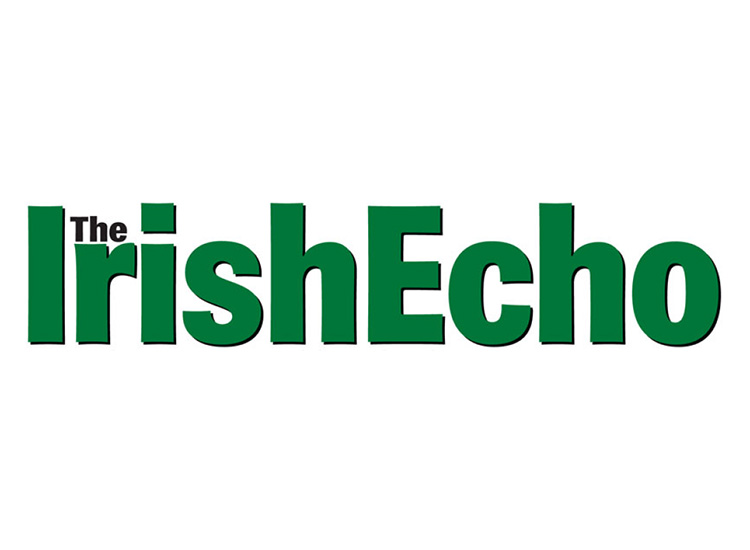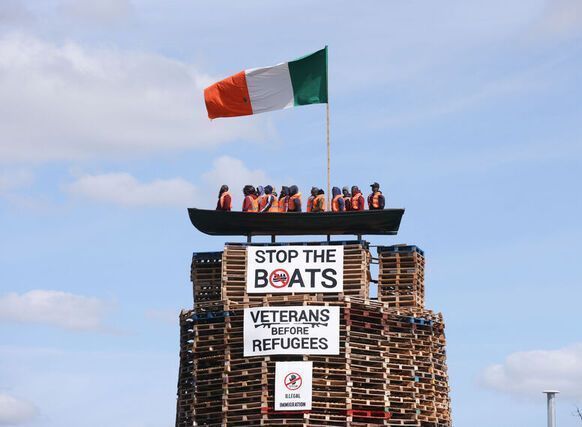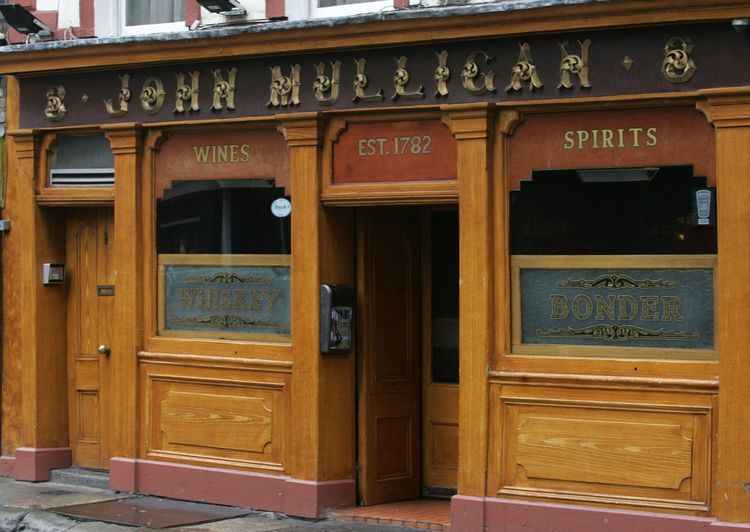President Higgins in the General Assembly Tuesday with Ireland’s Ambassador to the United Nations, Geraldine Byrne Nason seated to his immediate right.
By Ray O’Hanlon
Ireland wants to secure a rotating seat on the United Nations Security Council when a vote is taken two years from now for the council that will take its seats on the first day of 2021.
So it might seem a little odd that President Michael D Higgins, in his speech to the UN General Assembly on Tuesday, took a very overt swipe at the council.
Well, not really.
The Irish president’s pitch was to the General Assembly and the voting member states of the world body, all 193 of them.
The council has fifteen members, five of them permanent and ten rotating members elected on a global regional basis and each of them serving a two year term.
For the record here’s what President Higgins said in relation to the council in his Tuesday address: “If we are to truly commit ourselves to the objective of sustaining peace we must discard any narrow and cynical realism. The young of the world are appalled by any suggestion that what is normative is for the General Assembly, and that the strut of the powerful and the wielders of power can prevail in the Security Council. That is what is losing the young.”
The “powerful and the wielders of power,” presumably, would include the five permanent members, though likely also other member states who, in the eyes of the Irish president, might be narrowly focused and cynical in their employment of a Security Council vote.
The permanent five, of course, are the United States, Russia, China, the United Kingdom and France.
Each of the five has a veto that can stop the Security Council in its tracks.
It was the Soviet Union’s veto that kept Irish membership of the UN at bay from 1945 to 1955.
As Joe Joyce wrote in the Irish Times in 2011, on the first occasion, the reason given was the absence of Irish diplomatic relations with the Soviet Union.
Then Moscow accused Ireland of having been pro-Nazi during the Second World War.
Wrote Joyce: “Taoiseach Eamon de Valera responded with a forthrightness that mirrored his riposte to Winston Churchill’s criticism of Irish neutrality.”
As per a New York Times report in 1947 included in the Irish Times 2011 account: “Ireland is not disturbed at the prospect of being refused membership of the United Nations Organisation through the exercise of the Russian veto.
“This was made clear to the Dublin correspondent of the New York Times by Mr. de Valera in an interview yesterday.”
The Times reported de Valera’s riposte: “The decision to apply for membership was taken by the Irish Government with no little misgiving and only because Ireland wished to play her full part in every effort to secure international co-operation and world peace. The reasons given by the Russian representative for opposing Ireland’s admission are obviously a pretence.
“The statement that Ireland expressed sympathy with the Axis is simply untrue. The Irish people are genuinely a democratic people, who, while they do not desire to interfere with the manner in which other peoples organise their social life or govern themselves, dislike for their own part and fundamentally, dictatorships and dislike them whatever their variety.
“As for Ireland’s attitude during the war, Ireland remained neutral, but she would have defended herself to the best of her ability if attacked.
“Russia did not enter the war until she was attacked and, for almost two years preceding her entry, Russia assisted Germany in accordance with the terms of a trade agreement which she made with Germany shortly before the war.
“Moreover, the immediate preparatory step to Germany’s attack on Poland on September 1st, 1939, was the conclusion of the famous Non-Aggression Pact between Russia and Germany, signed by Mr. Molotov [Soviet Foreign Minister] and Herr Ribbentrop [German Foreign Minister] on August 23rd - i.e., one week before the war broke out. That agreement was interpreted by everyone at the time as giving Germany a free hand to go ahead.
“The Russian view of the qualities required in a nation for entry into the United Nations Organisation is a strange one.
“If Russia, which attacked Finland, Poland, Estonia, Latvia, Lithuania, can be regarded as qualifying as a peace-loving nation, it is difficult to see how a nation which kept the peace and scrupulously fulfilled all its obligations as a member of the League of Nations can rightly be regarded as not qualifying – but, then we have no diplomatic relations with Russia.
“Russia’s action in this matter is clearly an abuse of power and it is obvious that no organisation in which such action is possible will command the peoples’ respect or can long endure.”
Perhaps it was no surprise that the Soviets kept the door closed to Irish membership for a full decade.
When the door was finally opened, Ireland walked through it enthusiastically. The Republic has been an enthusiastic member of the world body every year since.
“Ireland’s membership of the United Nations has been central to our foreign policy since we joined in 1955. The principles and values enshrined in the UN Charter are those which we have always strived to promote and protect,” states the Irish Department of Foreign Affairs on its website.
Being enthusiastic, of course, does not mean an absence of criticism, as was evident in Tuesday’s speech by President Higgins.
Ireland last had a rotating seat on the Security Council in 2001-02. Prior to that it was 1981-82 while the very first membership opportunity came in 1962.
During the 1981-82 stint the Falklands War broke out and the Irish seat on the council became somewhat warmer when Taoiseach Charles Haughey opposed British efforts to maintain sanctions against the junta in Buenos Aires.
The Security Council’s rotating members are drawn from blocs.
Ireland sits in the Western European and Other States bloc. As such, it doesn’t have to compete with the likes of, say, Bhutan.
But the entire General Assembly membership gets to vote so the campaign for support extends well beyond Europeans shores.
In order to obtain a two-year membership back in 2001, Irish diplomats went boldly beyond where they had gone before in search of support, and that included far flung islands in the Pacific with names like Vanuatu and Tuvalu.
A campaign for a rotating seat means a lot of background work, but also demands clear cut and at times strategic voting in the General Assembly.
This was the case recently when Dublin ignored warnings from the Trump administration of possible retaliation and voted with a majority of UN member nations to reject Washington’s recognition of Jerusalem as capital of Israel along with President Trump’s stated intention of moving the U.S. embassy from Tel Aviv to the disputed city.
Ireland joined with 127 other nations in that vote.
Some members abstained and others were no-shows in the General Assembly hall.
Abstaining and absence is unlikely to impress fellow members so expect Ireland to be consistently at its place in the assembly hall over the next two years – that would be sitting between Israel and Iraq according to the alphabetic seating arrangement.
Ireland’s campaign will be led by current Irish Ambassador to the United Nations, Geraldine Byrne Nason.
A former ambassador to France, Byrne Nason was appointed to the UN post last August so, presumably, is well settled in by now.









